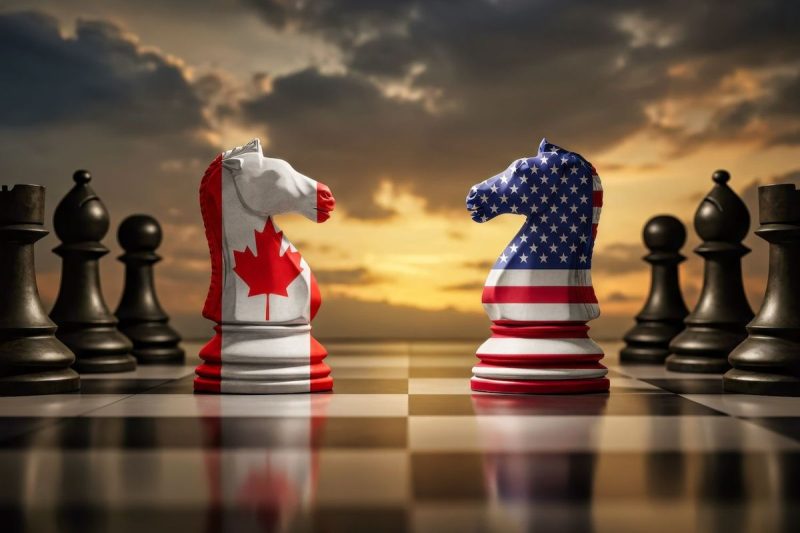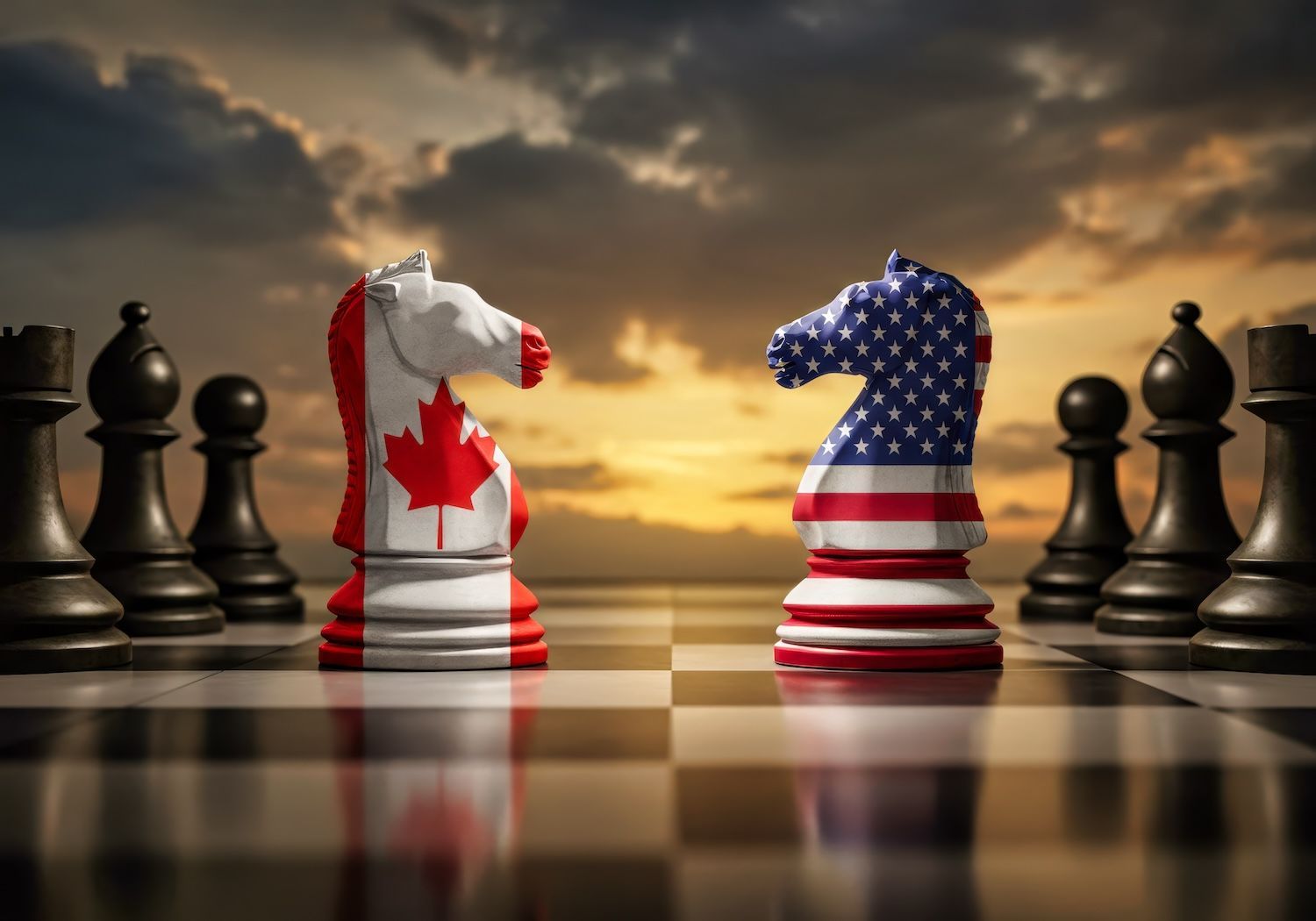

US President Donald Trump has once again raised the idea of Canada becoming the 51st state, this time linking the prospect to the country’s vast array of natural resources.
His remarks, made during an in-flight conversation with reporters on Air Force One, coincided with his plans to levy 25 percent tariffs on all steel and aluminum imports — including from Canada and Mexico.
‘They don’t pay very much for the military, and the reason they don’t pay much is they assume that we’re going to protect them,’ Trump said. ‘That’s not an assumption they can make, because why are we protecting another country?’
He went on to suggest Canada is “not viable as a country,” hinting that integration with the US could be a solution.
Late last week, Canadian Prime Minister Justin Trudeau, speaking behind closed doors to business and labor leaders, was overheard acknowledging that Trump’s talk of absorbing Canada into the US is “a real thing.”
According to CBC, Trudeau’s remarks were accidentally broadcast over a loudspeaker. “Mr. Trump has it in mind that the easiest way to do it is absorbing our country, and it is a real thing,” he said before the audio cut out.
On Friday, Trudeau said Trump’s desire to turn Canada into the 51st state is a “real thing.” Right wing trolls exploded, saying Trudeau was lying. Today, Trump was asked directly and he said … yes, it’s a real thing. When awful people show you how awful they are, believe them. https://t.co/UHcj7blI5Z
— Gil McGowan (@gilmcgowan) February 9, 2025
The Associated Press reported that Trudeau’s office has not responded to requests for comment, but Alberta Federation of Labor President Gil McGowan later confirmed the prime minister’s assessment.
McGowan, who was at the meeting, wrote on social media that Trudeau believes Trump’s real agenda is not just about fentanyl, immigration or even the trade deficit, but about dominating Canada economically — or taking it outright.
Canada-US trade war escalates
Days after Trudeau’s remarks were leaked, Trump confirmed his administration will impose 25 percent tariffs on Canadian steel and aluminum imports, reviving a trade war that first erupted in 2018.
Back then, the Trump administration imposed similar tariffs under the justification of national security concerns, prompting Canada to retaliate with counter tariffs on US goods such as orange juice and whiskey.
The dispute ended in 2019, when an agreement was reached to monitor steel and aluminum flows, preventing so-called ‘surges’ in imports. Trump has long criticized the Canada-US-Mexico Agreement (CUSMA), the successor to the North American Free Trade Agreement (NAFTA), and has vowed to renegotiate it.
The agreement is scheduled for a mandatory review in 2026, but Québec Premier François Legault called for immediate discussions in a recent social media post to prevent further economic uncertainty.
This is the next four years. Shifting goalposts and constant chaos, putting our economy at risk.
I’m asking the people for a strong, stable, four-year mandate that outlasts the Trump administration to do whatever it takes, to always be ready to protect Ontario. https://t.co/9lht8GlSHd
— Doug Ford (@fordnation) February 9, 2025
Ontario Premier Doug Ford echoed those concerns, calling Trump’s trade policies a destabilizing force.
‘This is the next four years — shifting goalposts and constant chaos, putting our economy at risk,’ Ford said in a post on X, formerly known as Twitter, on Sunday (February 9).
‘Fentanyl crisis’ at the forefront of trade relations
Trump’s latest tariffs have been tied to his broader concerns over border security, particularly the trafficking of fentanyl and illegal immigration, issues that he raised on the campaign trail.
Earlier this month, he threatened to impose sweeping 25 percent tariffs on all Canadian and Mexican imports starting February 1 unless both countries took stronger measures to secure their borders. After negotiations with Trudeau and Mexican President Claudia Sheinbaum, the White House agreed to delay the tariffs for 30 days.
Canada has since announced a US$1.3 billion border security initiative, which includes increased patrols, aerial surveillance and the appointment of a new “fentanyl czar” to coordinate efforts with US officials.
Despite the extension, Trudeau has made it clear that Canada won’t accept blame for America’s fentanyl crisis.
“We need to be very deliberate about how we continue to engage closely with the United States to make the case that Canada is responsible for a tiny part of the North American fentanyl problem, but that we are also bitterly touched by this tragedy,” the prime minister said in public remarks on February 7.
Canada’s resource wealth in the spotlight
Trump’s remarks about Canada’s economic dependence on the US come at a time when the country is making moves to accelerate its critical minerals industry and solidify its spot in the supply chain.
Last week, the BC government shared plans to fast track 18 mining and energy projects worth about US$20 billion.
“They’re being held up in some kind of administrative or regulatory or government process,” BC Premier David Eby said of the assets, which include the Eskay Creek gold-silver project in Northwest BC. “We can expedite that, get those shovels in the ground. And with particular attention to more rural and remote communities.”
The Mining Association of BC welcomed the announcement, pointing out that Canada’s resource sector will play a crucial role in global supply chains; however, other entities have expressed concerns about deregulation.
The province has 17 additional critical mineral projects in the pipeline, with several expected to enter permitting processes this year.
Securities Disclosure: I, Giann Liguid, hold no direct investment interest in any company mentioned in this article.














